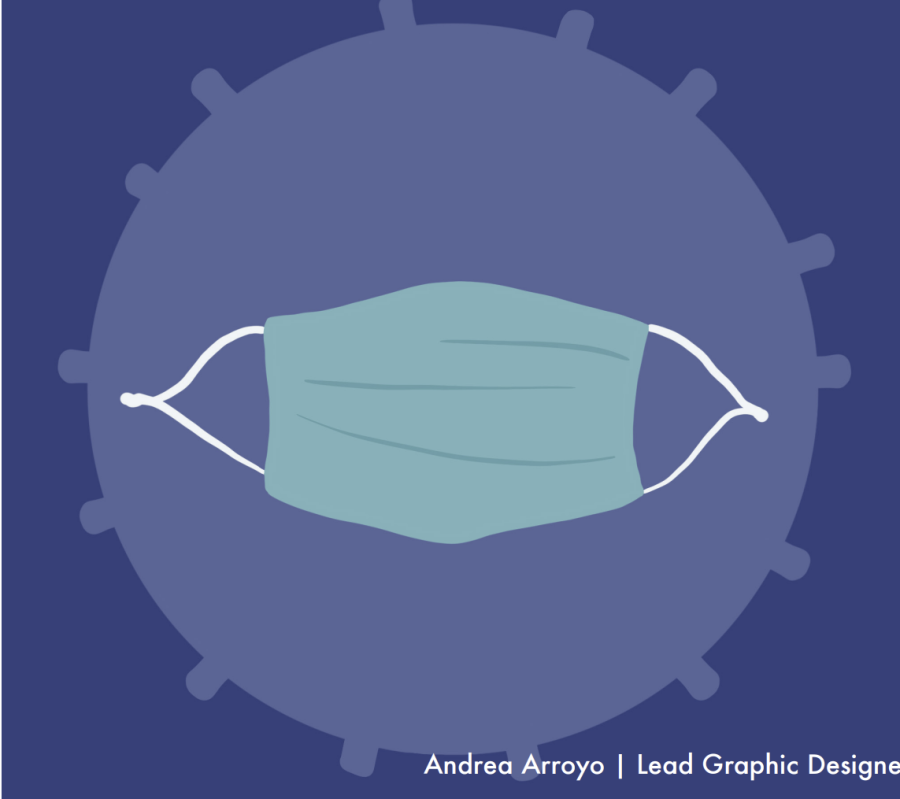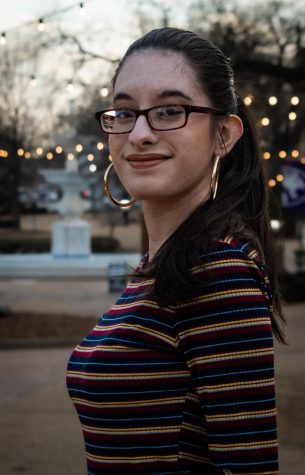A Q&A With Kimberly Greenway on COVID-19
January 19, 2022
The COVID-19 virus continues to prevail across the world, in the United States and on The University of North Alabama’s campus.
Emails are being sent to students weekly to update them on the current precautions to take to protect themselves and others from COVID-19.
Going into the spring semester, students were told that they would not be required to wear masks on campus, but encouraged to continue to do so, especially if they are unvaccinated or have not received a booster shot. However, an email sent out to students by UNA Student Affairs on Jan 11. changed this for some students.
“Although we anticipate a decline in positive COVID cases over the next few weeks, the case data indicate that our region is currently experiencing a peak. In light of the data, some faculty members have requested the ability to require masks in the classroom. The request was approved earlier today. Faculty members who choose to require masks in the classroom will include the requirement in revised syllabi and will also notify class members via written communication. Additionally, during this peak time, some events with high-density population may require masks.”
UNA’s Covid Recovery Task Force (CRTF) is recommending that students who are exposed to COVID follow the current CDC guidelines in place which advise that those who are exposed to COVID but are fully vaccinated and boosted to wear a mask for 10 days, but if they receive a negative test after the first five days, they can resume normal activities. Those who have been vaccinated but not boosted or are unvaccinated should quarantine for five days, take a test and quarantine for ten days if it’s positive and have symptoms. Even if it’s negative, you should continue to wear a mask and keep a distance from others if you have been exposed.
The Flor-Ala’s Managing Editor, Brooke Freundschuh, asked Dr. Kimberly Greenway, Vice President of Student Affairs and the chair of the CRTF to ask her some questions about these updates and the future of UNA in the pandemic.
Freundschuh: Why is a decline in positive cases expected soon?
Greenway: The anticipated decline is based on international trends and medical predictive data. Countries that experienced the Omicron variant before it was known in the United States show similar trends.
Freundschuh: Do you think that by the time the surge ceases from Winter break exposure that it will be time for Spring break?
Greenway: Predictive data indicate that we should begin seeing a decline by the end of January. Omicron and other COVID variants will likely be around for the foreseeable future. However, health officials anticipate that, like with many other viruses, most individuals will build immunity.
Freundschuh: Is there a certain threshold of attendees at an outdoor event that would require masks to be worn?
Greenway: The size of the event space and the population density are considerations. Typically, if distancing is available, masks would not be required.
Freundschuh: UNA was at one point doing vaccine clinics. Will there be booster clinics?
Greenway: We do not anticipate having vaccine booster clinics. UNA was fortunate to be among the first in the area to provide vaccines. However, the vaccine is now widely available in our area, so it makes more sense for our medical staff to focus on other services for our community.
Freundschuh: Will the university have at-home tests to pass out soon as part of President Biden’s initiative to provide at home testing?
Greenway: We do not know this at this point.
Freundschuh: What is the most important thing for students to remember at this point in the pandemic?
Greenway: Perhaps the most logical is to stay home if you don’t feel well and contact University Health Services for guidance



